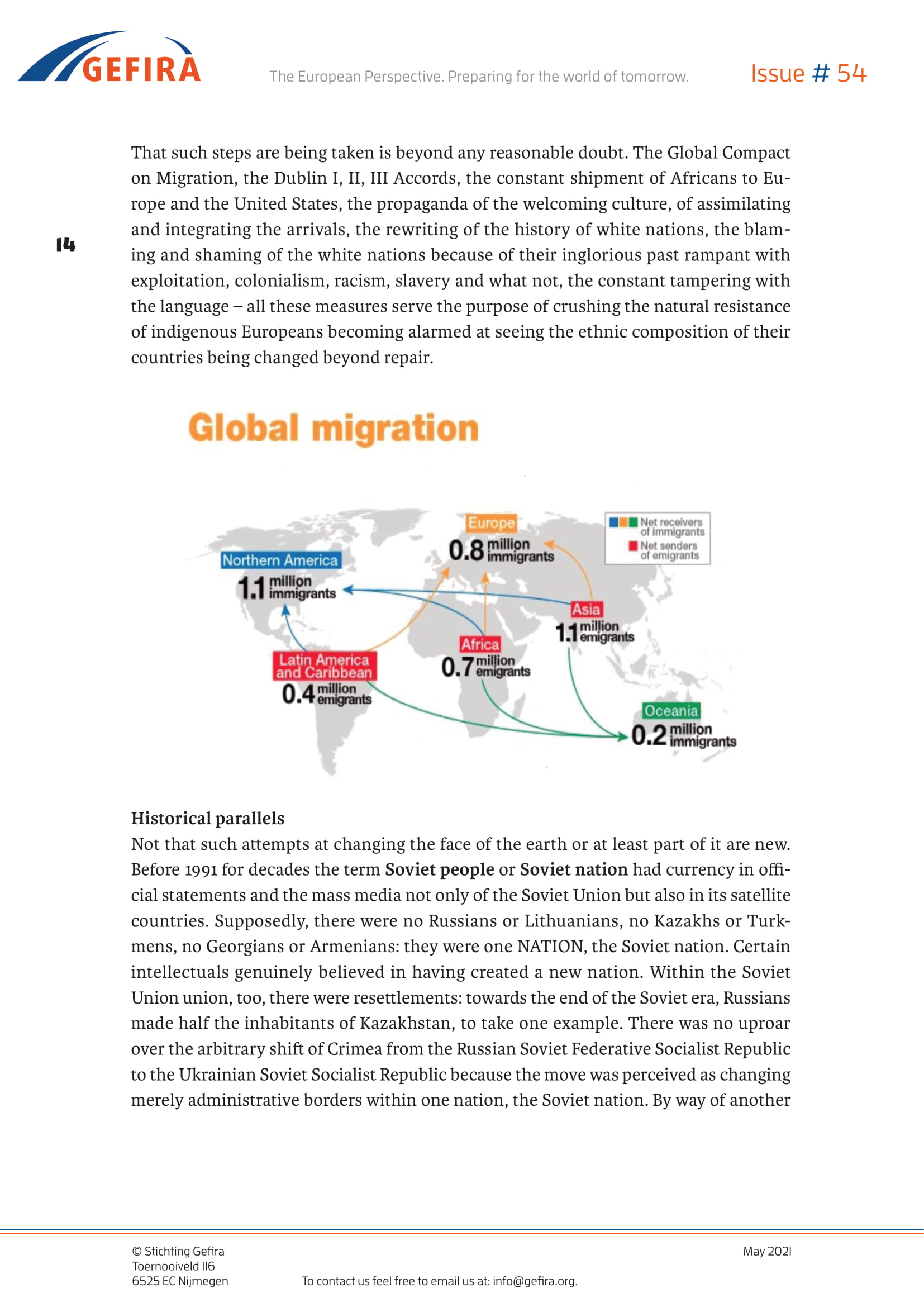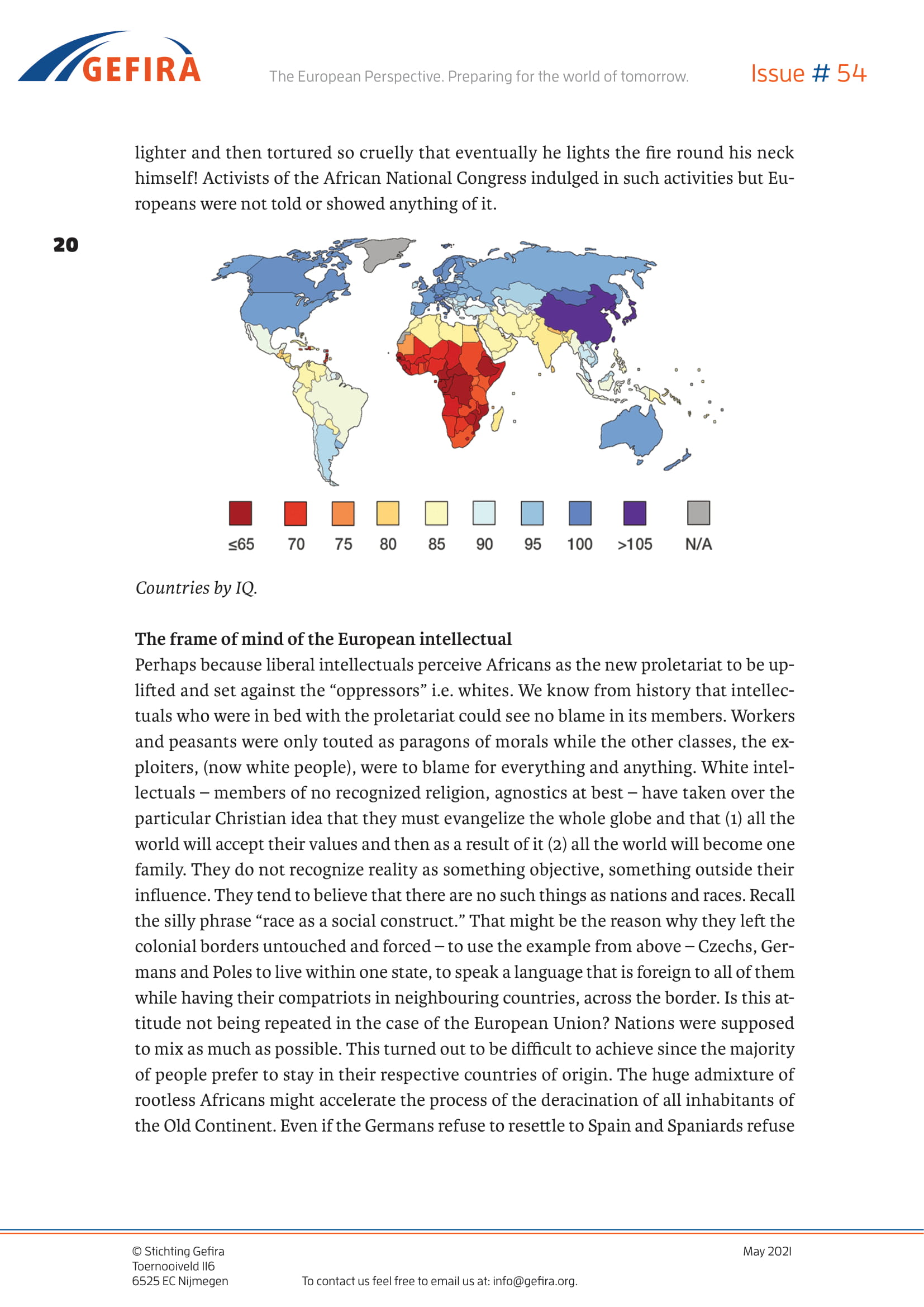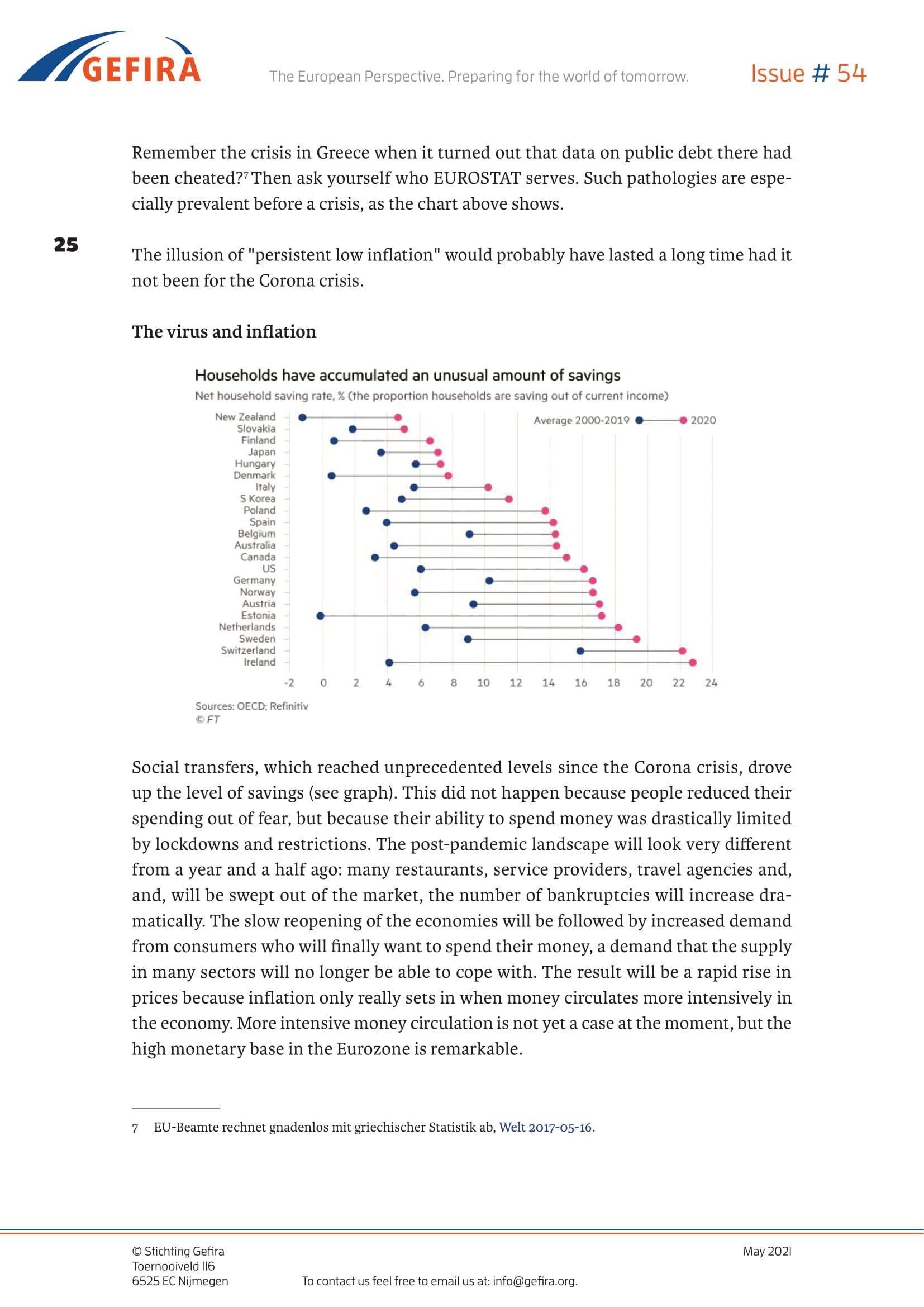Description
Gefira 49 made its readers more familiar with the idea of the Great Reset espoused by Klaus Schwab, the idea of refurbishing the whole world so as to make it – yes! – even better. We all know how badly we fare and how much we are afflicted with inequalities and how many problems beset us and how much poverty surrounds us. Hence, the project of restructuring capitalism, the best of the economic systems; hence, the proposition of transforming it into a kind of family business, with the word family denoting particular communities and ultimately all humanity, without regard for ethnicity, sex (nay, gender), skin… no need to enumerate the usual string of qualifiers. This new capitalism is technically referred to as stakeholder (not to be confused with shareholder) capitalism, really a kind of communism imposed from above. After all communism was state capitalism while this type of communism is going to be managed by global corporations rather than states. Now Gefira 54 picks up where Gefira 43 left off and goes on to have a closer look at the other branch of this breath-taking initiative developed and announced by the world’s elites: the branch’s name is inclusive capitalism and its apostle – or to be precise – female apostle is Lynn Forester de Rothschild. Inclusive capitalism appears to be another name for stakeholder capitalism, with all the same litany of wishful thinking: the top rich have joined forces to make the life of the hundreds of millions better in every significant respect. We know nothing about the actual goals of the elites, but the avowed targets are – as usual – equality and equity and fairness and the planet without regard for… well, we all know for what.
Gefira 54 then scrutinizes a significant part of mankind i.e. Africa or the Dark Continent, to see whether the lofty ideals disseminated and pursued by the billionaires are feasible in the place where they are most needed. We survey Africans, their patterns of behaviour and their capabilities not only on the continent where they are indigenous but also in the African diaspora and we ask a few questions, wondering, whether the world’s elites see the problems that we see. It is, by the way, an interesting phenomenon that the rich should care so very much about the poor. It is also an interesting phenomenon – which by now has become a rule – that individuals who have made very big money, oftentimes within one generation, within a decade or two, automatically become philanthropists with their own agendas of “making the world a better place” as is often said or sung. Likewise, it would be interesting to know whether they want to share the wealth that they have amassed with the rest of us or elevate us all to their status. If the former is the case, obviously, super rich though they are, their wealth spread among a few billion people would be reduced to so tiny individual amounts as to render them ridiculous. If the latter is the case, then we need to overcome our disbelief that the super rich mean it seriously to endow the hundreds of millions of people with manor houses, private jets and yachts. I can hear some of you say that neither of these sounds plausible. True enough. Then the elites must have conceived something other than what they reveal to us. What is it?
The equal or equitable (they make this distinction and few people care to find out what it means) society of tomorrow seems to be all the more problematic if we only take a closer look at the world’s finances, with the money being created by a click of a computer mouse and the production and services being largely hampered by the state of emergency that has been imposed almost everywhere around the globe because of the nucleic molecule in a protein coat that occasionally expedites someone’s arrival at the Pearly Gates.









Reviews
There are no reviews yet.